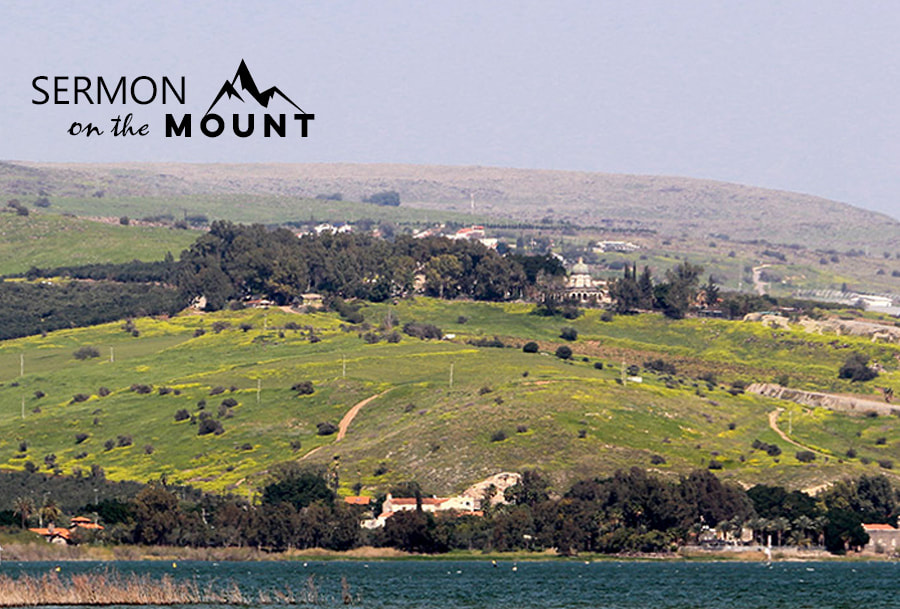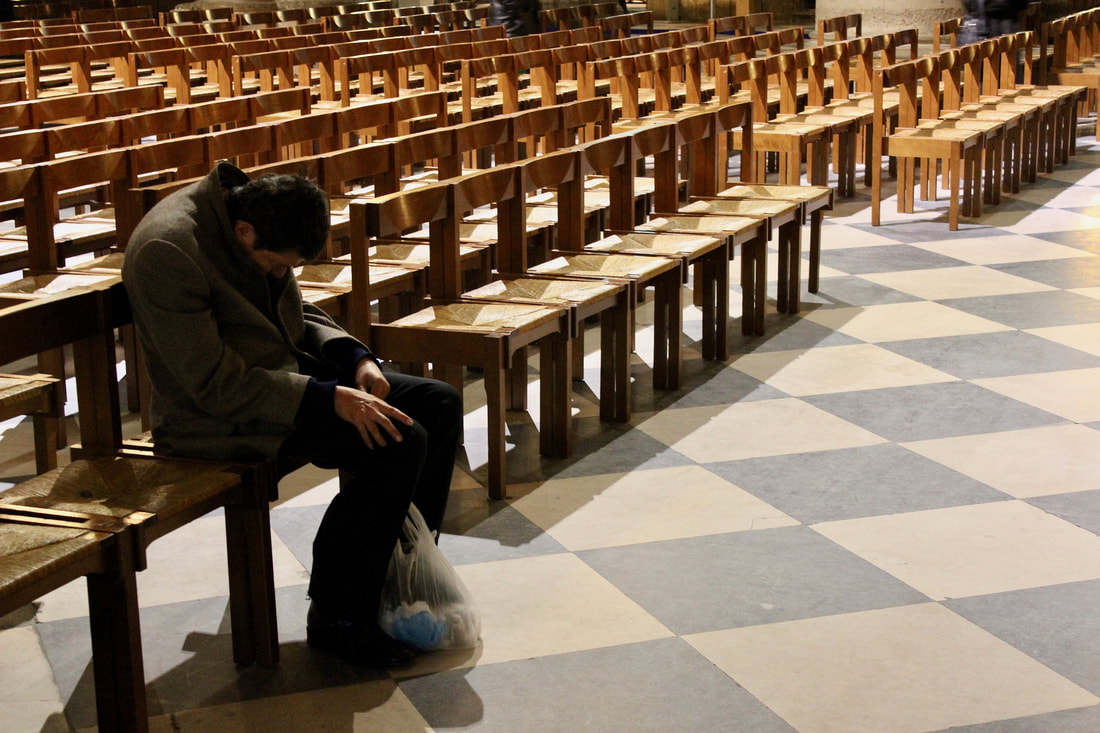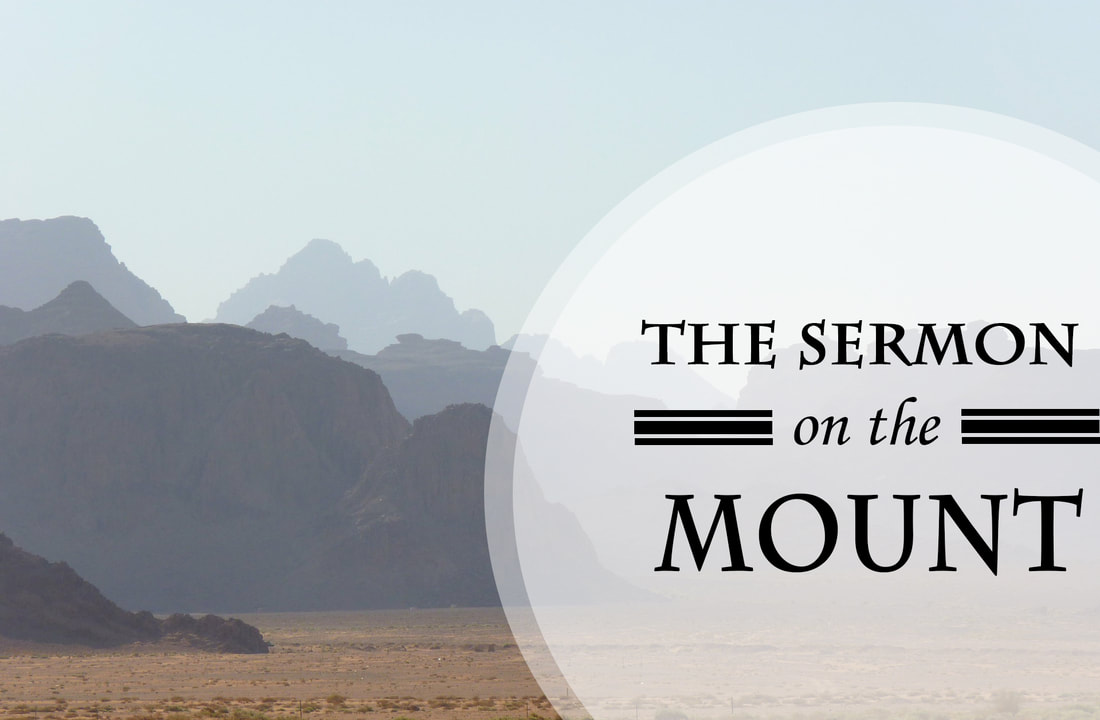|
A Philip Yancey Chapter Summary The Sermon on the Mount asks us to be perfect because our heavenly Father is perfect (Matthew 5:48). This requires giving away all of our wealth (Matthew 19:16-30); not using the word “fool” (Matthew 5:22); inviting a bully to bully us again (Matthew 5:39); loving God with all our hearts (Matthew 22:37); and loving others, including our enemies, as ourselves (Matthew 5:44, 7:12).
Did Jesus expect us to give to every panhandler crossing our path, abandon all consumer rights, and cancel our insurance policies? Let’s learn from Russian novelists Tolstoy and Dostoevsky. Tolstoy deeply respected God’s standards and earnestly tried to live up to them. For example, he freed his serfs, gave away his copyrights, and disposed of his estate. Yet he saw himself inadequate and was deeply unhappy. He died like a vagrant in a rural railroad station. Dostoevsky’s novels communicate grace and forgiveness. He accepted he was ultimately unable to follow God’s standards. His solution was love. To him, we could love only if we are loved, and we love because God first loved us (1 John 4:19). Examples of God’s forgiveness and love include Christ forgiving an adulteress, a criminal on the cross, and those who nailed Him (Luke 23:34); selecting Peter (who had denied ever knowing Him) to found His church; recruiting Paul (a murderer of Christians) to be His chief gentile evangelist; and blessing the poor in spirit, the mourners, and the meek. Tolstoy looked at the kingdom of God within him and saw his failure. He taught us to never feel comfortable in view of God’s standards. Dostoevsky looked at Christ within him and saw grace. He taught us to always be comforted by God’s forgiving love (Romans 8:1). The Sermon on the Mount tells us what God is like: perfect (so should we strive to be); compassionate even to those against Him (so love our enemies); and generously loving (so trust Him and don’t live in anxiety; even earthly fathers take care of their children). The Sermon on the Mount also tells us that the Pharisees’ legalism isn’t good enough (Matthew 5:20). Though we can never reach God’s standards, we keep striving towards them, while always relying on God’s grace through Christ. Summary of Chap 7 “Message: A Sermon of Offense” in “The Jesus I Never Knew” by Philip Yancey 登山宝训: 律法与恩典 登山宝训要求我们要完全,因为我们的天父是完全的(马太福音 5:48)。我们需要把所有的财富都捐出去(马太福音 19:16-30); 不使用“愚人”这个词(马太福音 5:22); 让欺负我们的人再次欺负自己(马太福音5:39); 全心全意地爱神(马太福音22:37); 并爱人如己,包括爱我们的仇敌(马太福音 5:44、7:12)。 耶稣是否希望我们向每一个遇到的乞讨者施舍,放弃所有消费者权利,和取消所有购买的保险呢? 让我们向俄国小说家托尔斯泰和陀思妥耶夫斯基学习。 托尔斯泰深深地尊重上帝的标准,真诚努力地达到这些标准。 例如他解放了农奴,放弃了版权,并卖掉了自己的财产。 然而他依然看自己为不足,仍然非常不高兴。 最终,他像流浪汉一样死在乡村火车站。 陀思妥耶夫斯基的小说传达了恩典和宽恕。 他接受自己无法遵循上帝标准的事实, 他的解决办法就是爱。对他来说,人只有通过被爱才能爱, 我们爱是因为神先爱我们(约翰一书 4:19)。 神的宽恕和慈爱的例子包括基督赦免了一个行淫的妇人、一个钉在十字架上的罪犯以及那些钉死祂的人(路加福音23:34)。 祂拣选了否认认识主的彼得来建立祂的教会;招募杀害基督徒的保罗作祂的首席外邦传道者; 祂祝福虚心的、哀恸的和温柔的人。 托尔斯泰看着他内心的上帝之国,看到了他的失败。 他教导我们因为不及上帝的标准而永远不要感到自在。 陀思妥耶夫斯基看着他内心的基督,看到了恩典。 他教导我们要因上帝通过基督所发出的宽恕之爱而感到安慰(罗马书8:1)。 登山宝训告诉我们上帝是怎样的一位上帝:完美(所以我们应努力去做到); 甚至对那些敌对的人也充满同情(所以我们应爱自己的仇敌); 以及慷慨地爱(所以我们应信靠祂,不要生活在焦虑中; 即使是地上的父亲也会照顾他们的孩子)。 登山宝训还告诉我们法利赛人的律法主义不够好(马太福音5:20)。 尽管永远无法达到上帝的标准,我们要始终依靠上帝通过基督的恩典,继续向这些目标努力。
0 Comments
Christ told us to seek first His kingdom (Matthew 6:33). What does it mean? What is God’s kingdom? God’s kingdom isn’t a physical place but rather where God rules, where His name is honored and treasured, and where His will is done perfectly and joyfully (Psalm 103:19). God’s kingdom exists now among those who have passed through His judgment via Christ and live under His dominion (Luke 11:20, 17:21; Colossians 1:13). But God’s kingdom is also coming, to be inherited (Luke 19:11, 1 Corinthians 6:9). When Christ comes back to establish the new heaven and earth, His kingdom will have come, as petitioned in the Lord’s prayer. God’s kingdom is manifested in a life justified through Christ and gradually more conformed to Him, and in a life of peace and joy via the Holy Spirit (Romans 14:17). The Holy Spirit bears such fruits, so let the Holy Spirit lead. That is when God is pleased and His kingdom is here (Romans 14:18, Matthew 12:28). We are different from each other, but such differences shouldn’t affect God’s kingdom nor hurt other Christians. Let’s glorify God in our different ways and serve in love, because Christ died for us all, and all stand before His judgment. The Holy Spirit will help us build others up (Romans 14:3-23). God doesn’t need our services; in fact, He provides all things and Christ came to serve (Acts 17:25, Mark 10:45). Our service should bear witness to His kingdom (Romans 14:18) and bring glory to Him, not showing off our abilities (Hebrews 13:21). God loves to see His workmanship shine. Such service glorifies God and pleases Him (1 Peter 4:11, Romans 14:18). If we seek His kingdom and what He considers right, “all these things” shall be given to us. “All these things” doesn’t mean what makes us comfortable. We may endure persecution, war, and famine. “All these things” are the traits and resources we need to follow His will, glorify His name, and live under His rule. Don’t be anxious about survival or appearances because nothing can separate us from His love (Matthew 6:26-30). Instead, seek His kingdom before all else. Summary of three sermons by John Piper. “What is the Kingdom of God”: https://www.youtube.com/watch?v=khotCJrEFzQ “Matthew 6:33”: https://www.youtube.com/watch?v=YdNTtscGMl8 The Kingdom of God is Righteousness and Peace and Joy in the Holy Spirit: https://www.youtube.com/watch?v=pRm60ZUoZSg 什么是上帝的国?
基督教导我们要先求上帝的国(马太福音 6:33)。 这是什么意思呢? 什么是上帝的国? 上帝的国不是一个物质的地方,而是上帝统治的地方, 祂的名在那里被尊敬并珍惜,祂的旨意在那里得到完美和喜乐的成就(诗篇 103:19)。 上帝的国现存于那些藉着基督通过了祂的审判并接受祂统治的人中间(路加福音11:20、17:21;歌罗西书1:13)。 但上帝的国也将来临,将被承受(路加福音 19:11,哥林多前书 6:9)。 当基督再来完成祂的统治并建立新天新地时,祂的国就到来了,正如主祷文中所祈求的那样。 上帝的国显现在因基督而称义并逐渐变得更加像基督的生命中, 显现在那藉着圣灵而有的平安喜乐的生命中(罗马书14:17)。圣灵结出这样的生命果子, 所以让圣灵来引导我们的生命。 这就是上帝喜悦的时候,也是上帝的国降临的时候(罗马书 14:18,马太福音 12:28)。 我们每个人都不一样, 但这种差异不应该影响上帝的国,也不应该伤害其他基督徒。 让我们以不同的方式荣耀上帝, 并凭着爱心来服事,因为基督为所有人而死,并且所有人都要站在祂的审判面前。 圣灵会帮助我们造就人(罗马书 14:3-23)。 上帝不需要我们的事奉。 祂供应万有,并且基督来服侍我们(使徒行传17:25,马可福音10:45)。 我们的服事应该为上帝的国作见证(罗马书14:18),将荣耀归给上帝,而不是炫耀自己的能力(希伯来书13:21)。上帝喜悦看到祂的作品闪耀发光。 这样的服侍荣耀上帝并讨祂喜悦(彼得前书 4:11,罗马书 14:18)。 如果寻求上帝的国和祂以为正的事, “这一切”都会赐给我们。 “这一切”并不意味着让人感到舒适的一切. 信徒可能会经历迫害、战争和饥荒。 “这一切” 乃是遵行祂的旨意,荣耀祂的名,并在祂的统治下生活所需要的品质和资源。 不要为生存或外在之事物而焦虑,因为没有什么能使我们与祂的爱隔绝(马太福音6:26-30)。 相反地在一切之上,让我们先求祂的国。 The Ten Commandments primarily focus on behaviors, while the Sermon on the Mount focusses on desires.
According to the Sermon, our goodness needs to be better than that of the teachers of the law and Pharisees. They depended on their works, but actions can be deceiving. Do we refrain from committing crimes for moral reasons, or because we fear getting caught? Christ focuses on our hearts and desires. Actions arise from them. For example, envy compelled Cain killed Abel, committing the first murder in the Bible. Hate can lead to murder, so don’t even call someone a brainless idiot or a worthless fool (1 John 3:15, 1 John 2:9, Matthew 5:22). Lustful thoughts can lead to adultery, so we should guard our minds (Matthew 5:28). “An eye for an eye” should be the job of the government. Police and the court of law are established by God to administer justice, matching punishments to the offense so as to deter criminals and purge evil (Romans 13:1-2, Deuteronomy 19:18-21). Sometimes, force is necessary. For example, Christ administered justice with physical force in a temple (John 2:13-16). In time of danger, Christ told his disciples to get swords to defend themselves (Luke 22:36-38). Paul exercised his rights as a Roman citizen (Acts 16:35-40). But beware of the consequences. If one lives by the sword, he will die by the sword (John 18:10-11, Matthew 26:52). There are times to take the unreasonable hit, turn the other cheek, and go the extra mile. Note that insults are difficult to bear. Even Paul could flare up (Acts 23:1-5). But our endurance can turn enemies into friends or, better yet, into followers of Christ. Christ is our model. He loved His enemies, as shown by His crucifixion. Christ’s behavior even converted the hardcore criminal who was crucified next to Him (Luke 23:39-43). Christ focuses on our hearts. He wants us to be perfect like our heavenly Father. So, do whatever is necessary to maintain a pure heart (Matthew 5:29-30, 48). But more importantly, rely on our Father in heaven to do so (Hebrews 12:1). Summary of a sermon by Greg Laurie: https://www.youtube.com/watch?v=rlqNRq5hl1g 自我防卫和报复 十诫主要关注外在的行为,而登山宝训则关注内心的渴望。 根据登山宝训,我们的良善需要比律法师和法利赛人的更好。他们依赖于自己的行为,但行为可能具有欺骗性。不犯罪是出于道德的原因还是因为害怕犯罪被抓住? 基督专注于我们的内心和渴望,行动从它们产生。例如嫉妒导致该隐杀死亚伯,这是圣经中的第一个谋杀案。 仇恨会导致谋杀,因此要避免称某人为没有头脑的白痴或一文不值的傻瓜 (约翰壹书 3:15, 2:9; 马太福音 5:22)。 淫荡的想法会导致通奸,因此要保守我们的心 (马太福音 5:28)。 “以眼还眼”应该是政府的职责。警察和法庭都是上帝为了执行正义而设立,量罪定刑使罪犯畏惧并清除邪恶 (罗马书 13:1-2;申命记 19:18-20)。 有时要使用武力和要行使自己的权利。例如,基督在圣殿中用武力施行公义 (约翰福音 2:13-16)。在危险的时候,基督告诉门徒要拿刀自卫 (路加福音 22:36-38)。保罗行使罗马公民的权利 (使徒行传 16:35-40)。但要注意使用这些方法的后果,“凡动刀的,必死于刀下 (约翰福音 18:10-11;马太福音 26:52)。” 有时要忍受无理的打击,转过另一边脸,再多走一里。侮辱是难以忍受的,就连保罗也会忍不住发火 (使徒行传 23:1-5)。但忍耐可以化敌为友,亦或更好的是把他们变成基督的追随者。 基督是我们的榜样。祂爱祂的仇敌,为罪人被钉十字架。基督的行为甚至感动了钉在身边的重罪犯,使他悔改归向祂 (路加福音 23:39-43). 基督关注我们的内心,要我们像天父一样完美。因此要尽力保持一颗纯洁的心 (马太福音 5:29-30, 48), 但更重要的是依靠天父才能如此 (希伯来书 12:1)。 Let’s learn from Matthew Chapter 5.
The Ten Commandments provide a list of do and don’ts. But the Beatitudes focus on the person we should become to be blessed and prosperous (7-9). True blessing is not from wealth, power, or obeying the Law. True blessing is based on who we are, such as being meek, hungry for righteousness, merciful, pure in heart, and peacemaking. As we become blessed, Christ told us we will impact the lives of others—bringing out the good in others, preserving the good, and introducing light to those in darkness, so that others may see our good deeds and glorify our Father in heaven (Matthew 5:13-16). Then Christ emphasized He came to bring the Law to its fullness (17-20). The endgame is not obeying the Law, but to become like God. Christ explained with a few examples. He started with murder and adultery. Christ intensified the Law by considering having evil thoughts to be the same as committing the corresponding acts. The key is not just obeying externally but becoming like our heavenly Father (21-30). Another example is an eye for an eye. Previously, the law included appropriate compensation. If a Jew had ruined a carpenter’s eyes, he had to support his family because the carpenter could not earn a living anymore. But Christ told us to turn the other cheek if one cheek was hit and go two miles if demanded to go for one mile. We not only don’t ask for compensation, but also give to our evil enemies more than they asked (38-42). The last example is to love our enemies (43-47). Perhaps nothing better demonstrates Christ’s character than this. He healed the wound of the soldier who came to arrest Him. On the cross suffering beyond comprehension, He forgave those who caused His intense pain. As we sin, He keeps forgiving, embracing, and helping us on our path of discipleship. Such perfection is impossible without our Savior’s grace. It is a journey to gradually become like our heavenly Father (48). Matthew 5 gives us a glimpse into eternity. As of now, we must keep trying to be a light to those around us; serve, lift them up, and love them. Through Christ’s perfection, we become complete. Summarized from a sermon at: https://www.youtube.com/watch?v=4l1ABgBRjZ4 理解登山宝训 让我们一起学习马太福音5章。 十诫提供了一份该做和不该做的清单,天国八福聚焦于什么样的人才是蒙福和富足的人 (马太福音 5:7-9)。 真正的福份不是来自财富、权力或遵守法律,而是基于我们是谁,例如是否拥有温柔、饥渴慕义、怜恤、清心、使人和平的品格。 当我们得到祝福时,基督教导我们应该也影响他人—带出他们里面的美好,保存良善的一切,为黑暗中的人带来光明。如此,其他人看到我们的好行为,就会荣耀我们在天上的父 (马太福音 5:13-16)。 基督接着强调祂来是要成全律法(马太福音5:17-20)。最终的目标不是遵守律法,而是变得像上帝。基督用几个例子来解释祂的意思。 基督从杀人和奸淫的例子开始。祂强化了律法, 认为有恶念与做出相应的行为是一样的罪。关键不只是表面的遵循,而是里面的生命要变得像天父一样 (马太福音 5:21-30)。 另一个例子是“以眼还眼”。此前,其目标包括适当的补偿。如果一个犹太人毁了一个木匠的眼睛,这犹太人就需要养活木匠的家人,因为受伤的木匠再也无法谋生。但是基督告诉我们如果有人打我们的右脸,连左脸也转过来由他打; 有人强逼我们走一里路,我们便跟他走二里。不仅不要求赔偿,而且还给出比那邪恶的敌人要求的更多(马太福音 5:38-42)。 最后一个例子是爱我们的仇敌,也许没有什么比这个更能彰显基督的品格(马太福音 5:43-47)。祂医好了前来逮捕祂的兵丁的伤口。在忍受十字架上不能想象的苦难当中,基督宽恕了那些带给祂巨大痛苦的人。当我们继续犯罪低于基督的标准时,祂不断地原谅、拥抱并帮助我们行走在训练门徒的道路上。 如果没有救主的恩典,这样的完美是不可能实现的。这是一个让我们逐渐变得更像天父的旅程 (马太福音 5:48)。 马太福音5 章让我们可以瞥见永恒。现在我们必须不断尝试成为周围人的光,服事、鼓励和爱护他们。 藉着基督的完美,我们变得像祂一样完全。 Many listening to Christ’s Sermon on the Mount had dire physical and mental needs. Surprisingly, Christ told them they could be blessed (Matthew 4:23-5:10).
Typically, those considered to be blessed are the talented, rich, powerful, healthy, beautiful, well-built, or crafty. Advertisements constantly depict the weak, poor, old, sad, awkward, fat, bald, or ugly as the unfortunate. However, according to Christ, those with desperate spiritual needs, those who consider themselves insignificant, are blessed. The humble, the gentle, and those who grieve are blessed (Matthew 5:3-5). Typically, we do not consider such people to be living the dream life. According to Christ, the determining factors of a blessed life are not based on what one owns, how one looks, where one lives, or how much one knows. There is no need to be the slave of the world’s demand. Because of Christ, we can be blessed. By depending on the grace of God, even the worst of us can be secure in the kingdom of God. The deplorable and the misfits, all can be blessed if they are in God’s kingdom. Not only did Christ see people differently, He was a friend of sinners (Matthew 11:19). He took them in as who they were. Alcoholics Anonymous’ success is at least because everyone there fully embraces each other as addicts. There is no pretending. Do not pretend there is no sin, assuming everyone is perfect and happy. Instead, accept everyone to be sinners, to be inadequate (1 John 1:8-10). Though we are a train wreck, God still accepts us as His children through Christ. This is the context of the Sermon on the Mount. May we see others differently than the world (2 Corinthians 5:16). May we see others as God sees us. May we accept others because God has accepted us. Summarized from a John Ortberg’s sermon, titled, “Still haven’t found what I am looking for”: https://www.youtube.com/watch?v=jsGQ0ZXfW2o 谁是有福的?谁在过着梦想般的生活? 许多聆听基督登山宝训的人身心上都有迫切的需要。令人惊讶的是基督一开始便说他们可以是有福的人(马太福音4:23-5:10)。 通常被认为有福的是那些拥有才华、钱财、权力、健康、美丽、魁梧身材或者狡猾之人。广告时常描绘不幸的人常常是那些软弱、贫穷、年老、悲伤、 笨拙、肥胖、秃头或面貌丑陋之人。 但是在基督眼里,那些在精神上和心灵上有极度需要的人,那些认为自己微不足道的人是有福的; 那些谦卑、温柔和悲哀的人是有福的 (马太福音5:3-5)。 通常我们不会认为这些人过着梦想般的生活。 在基督眼里有福的生活其决定因素并不在于拥有什么、外表如何、生活在哪里或知道多少,我们无需成为被这个世界需求所驱赶的奴隶。 我们因着基督都可以蒙福。 靠着上帝的恩典,即使最坏的人也可以在上帝的国中平安稳妥。可悲的人和不合群的人只要在上帝的国里都可以蒙福。 基督不仅用不同的眼光看人,而且还是罪人的朋友,按着本相接纳他们(马太福音11:19)。 匿名的酗酒者(Alcoholics Anonymous)这个机构的成功至少是因为在那里的每个人都接纳彼此都是瘾者的事实,互相坦诚以待,没有伪装。 我们也不应假装没有罪,每个人都完美幸福。相反地,要接纳所有人都是罪人, 都有不足的事实 (约翰壹书1:8-10)。 虽然我们好像被撞坏的火车残骸一样破烂不堪, 天父籍着基督仍然接纳我们成为祂的儿女。 这就是登山宝训教导的背景。愿我们不要从世俗的角度看待别人 (哥林多后书5:16)。 愿我们用神看待我们的眼光去看待每个人。 愿我们接纳每个人如同神接纳我们一样。 In the Sermon on the Mount, Christ told His disciples not to pursue “eye for eye,” but to love their enemies (Matthew 5:38-48).
Christ used four examples (injury, loss of clothing, loss of money, and being forced into labor) to illustrate how not to repay anyone “eye for eye” or evil for evil (Matthew 5:39-42). Not taking revenge does not mean being weak or encouraging injustice. Christ did not retaliate as He was nailed on the cross. Yet, He challenged the high priest. Furthermore, these behaviors are not for all relationships. For example, judges are entrusted to punish the wrong and reward the good (Romans 13:1, 4; Matthew 22:21). Similarly, the relationship of parents and children, compared to that of employers and employees, operate differently. In the Sermon on the Mount, the behaviors focus more on personal interactions, where one should let the state punish. Ultimately, let God avenge and punish the one who is evil. God said, “It is mine to avenge; I will repay” (Leviticus 19:18, Romans 12:19). Christ also taught His disciples to love their enemies (Matthew 5:43-48). In deeds, they should seek good for their enemies (Luke 6:27). In words, they should bless those who curse them (Luke 6:28). In prayers, they should pray for those who persecute them (Matthew 5:44). Otherwise, they would be no different from the wicked, who are good to those who are good to them also. Christ wanted His disciples to imitate their heavenly Father, who loved them while they were His enemies (Matthew 5:48, Romans 5:10). Also, God gives sun and rain to the evil and the good (Matthew 5:44-45). The Israelites were taught to love their neighbors and hate their enemies. But Christ wanted His disciples to be perfect, not to take revenge or repay evil for evil, but to overcome evil with good. This is impossible without the grace of God. However, it helps to know we are blessed children of God; and to know we are no better than our enemies, who have needs and desires like ours. Humans cannot achieve perfection in this life, but we can keep trying and asking God for forgiveness, just as Christ taught His disciples to pray (Matthew 6:12, 5:6). Be merciful, just as our heavenly Father is merciful (Luke 6:36). Summarized from the chapter, entitled, “Matthew 5:38-48 A Christian’s righteousness: non-retaliation and active love,” in “The Message of the Sermon on the Mount,” by John Stott. 崭新的人生态度 基督在登山宝训中告诉门徒不要“以牙還牙”,而要爱他们的仇敵 (马太福音5:38-48)。 基督用四个例子来说明不要“以牙還牙”或以恶还恶报复任何人:受到伤害、 失去衣服、失去金钱和强制性劳役(马太福音5:39-42)。 不复仇并不意味着软弱或鼓励不公正。基督被钉在十字架时虽然没有报复, 但祂却挑战大祭司。 需要进一步指出这些行为不是用在所有关系上。例如法官负责惩罚罪恶并奖励善良 (罗马书13:1,4;马太福音22:21)。同样地,父母和雇主也有各自的责任和不同的运作方式。 登山宝训针对的是个人为人处世之道, 惩罚罪恶则应由政府来执行。 最终当让上帝来报仇,惩罚邪恶之人。上帝说 “伸冤在我,我必報應(利未记19:18,罗马书12:19)。” 基督也教导门徒爱自己的仇敌 (马太福音5:43-48)。在行动上为敌人的好处而行 (路加福音6:27)。在言语上祝福那些诅咒自己的人 (路加福音6:28)。在祷告中为那些逼迫自己的人祈祷 (马太福音5:44)。否则,他们就与邪恶之人无异,就是罪人也爱那爱他们的人。 基督要门徒效法天父—在世人还是仇敌的时候,祂就爱他们(马太福音5:48; 罗马书5:10)。上帝“叫日頭照好人,也照歹人;降雨給義人,也給不義的人 (马太福音5:44-45)”。 以色列人的教导是“爱你的邻舍,恨你的仇敌。”但基督希望门徒要完全, 不要报仇或以恶报恶,而要以善胜恶。 如果没有上帝的恩典,遵循登山宝训的教导是不可能的。但知道自己是蒙福的上帝的儿女,明白自己并不比敌人更好,了解敌人与自己有着相似的需求和欲望,这一切都对我们行出基督的教导有所帮助。 人在今生无法完美无缺,但是可以继续努力,祈求上帝的宽恕, 就像主耶稣教导门徒的祷告一样 (马太福音6:12;5:6)。 要慈悲,就像天父慈悲一样 (路加福音6:36)。 When Jesus began to preach, He told people to repent because the kingdom of God had come near. Then one day, with large crowds following Him, He went up on a mountainside and preached the Sermon on the Mount (Matthew 4:17, 4:23-5:2).
Christ announced God’s kingdom before He began teaching the Sermon. God’s kingdom is a major theme in the New Testament: He sent His disciples to proclaim the kingdom of God (Luke 9:2); He taught them to seek God’s kingdom first (Matthew 6:33); and in the very last verse in Acts, Paul proclaimed the kingdom of God (Acts 28:31). What is one major characteristic of God’s kingdom? The word kingdom typically refers to a place where a king rules and where his word is law. In God’s kingdom, things happen according to His will. The citizens of God’s kingdom follow Him (Matthew 7:21). The Sermon on the Mount describes some behaviors of those in the kingdom of God. We see examples of such behaviors in Christ on earth, following the will of the Father. Where is the kingdom of God? In the Sermon on the Mount, Christ did not teach us to pray that we go to heaven. Instead, He taught us to pray for God’s kingdom to come down to earth, such as God’s kingdom come, God’s will be done, on earth as it is in heaven (Matthew 6:9-10). In the final glorious day, God’s kingdom will be on earth, and everything will be perfectly aligned to His will. But not now. Christ invited us to follow Him and heed His teachings in the Sermon on the Mount. Each time we do that, or we get closer to doing that, we will experience and show glimpses of the kingdom of God. Summarized from a John Ortberg’s sermon from a set of sermons at: https://www.crosspreach.com/sermons/listall/25/page:9 登山宝训的基础 耶稣开始讲道时告诉人要悔改,因为上帝的国已经临近。 有一天许多的群众跟随祂,祂就登上了山,宣讲登山宝训 (马太福音4:17, 4:23-5:2)。 耶稣在教导登山宝训前宣告上帝的国近了。 上帝的国是新约圣经的一个主要主题。基督差派门徒宣告上帝的国 ( 路加福音9:2); 祂教导门徒首先寻求上帝的国(马太福音6:33); 使徒行传的最后一节经文讲述的就是保罗宣告上帝的国 (使徒行传28:31)。 上帝的国意味着什么? “国”这个词指的是国王统治的地方,在那里他的话就是法律,所有的公民都要服从。 在上帝的国里一切都按照上帝的旨意而发生。上帝之国的公民跟随上帝 (马太福音7:21)。 登山宝训描述了神国里公民的一些行为。基督在地上跟随天父旨意的生活, 正是这些行为的最佳典范。 神的国在哪里? 基督在登山宝训里没有教导祷告去天国。相反地,祂教导祷告神的国降临到地上,“愿您的国降临,愿您的旨意行在地上如同行在天上 (马太福音6:9-10)。” 在最后荣耀的那日神的国将降临到地上,一切都会完全地遵循上帝的旨意。但现在时候还未到来。 基督邀请我们跟随祂, 并将登山宝训的教导铭记在心。每当我们如此行或接近如此行时都会经历和瞥见神的国。 |
Categories
All
|
Proudly powered by Weebly






